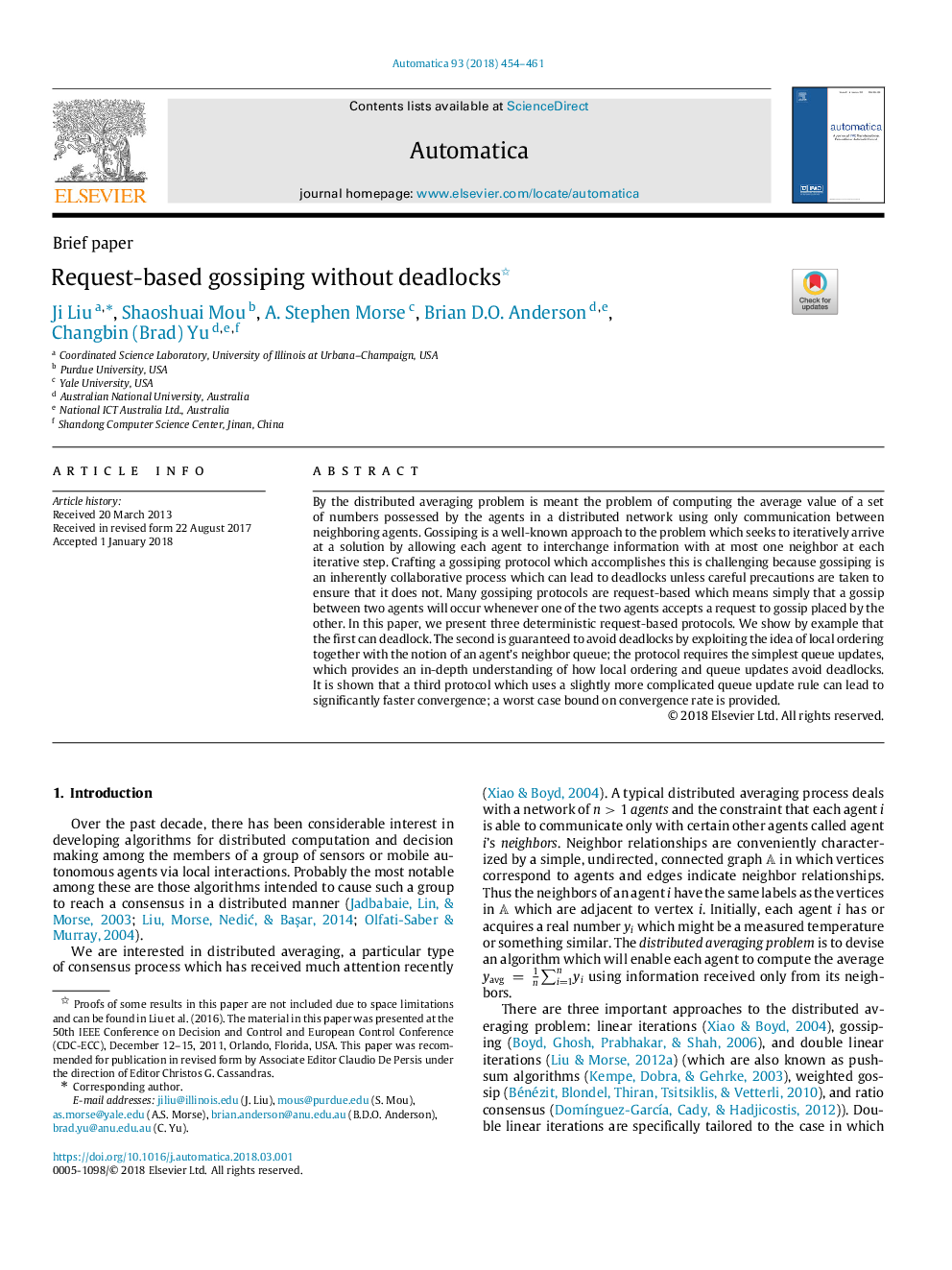| Article ID | Journal | Published Year | Pages | File Type |
|---|---|---|---|---|
| 7108719 | Automatica | 2018 | 8 Pages |
Abstract
By the distributed averaging problem is meant the problem of computing the average value of a set of numbers possessed by the agents in a distributed network using only communication between neighboring agents. Gossiping is a well-known approach to the problem which seeks to iteratively arrive at a solution by allowing each agent to interchange information with at most one neighbor at each iterative step. Crafting a gossiping protocol which accomplishes this is challenging because gossiping is an inherently collaborative process which can lead to deadlocks unless careful precautions are taken to ensure that it does not. Many gossiping protocols are request-based which means simply that a gossip between two agents will occur whenever one of the two agents accepts a request to gossip placed by the other. In this paper, we present three deterministic request-based protocols. We show by example that the first can deadlock. The second is guaranteed to avoid deadlocks by exploiting the idea of local ordering together with the notion of an agent's neighbor queue; the protocol requires the simplest queue updates, which provides an in-depth understanding of how local ordering and queue updates avoid deadlocks. It is shown that a third protocol which uses a slightly more complicated queue update rule can lead to significantly faster convergence; a worst case bound on convergence rate is provided.
Related Topics
Physical Sciences and Engineering
Engineering
Control and Systems Engineering
Authors
Ji Liu, Shaoshuai Mou, A. Stephen Morse, Brian D.O. Anderson, Changbin (Brad) Yu,
